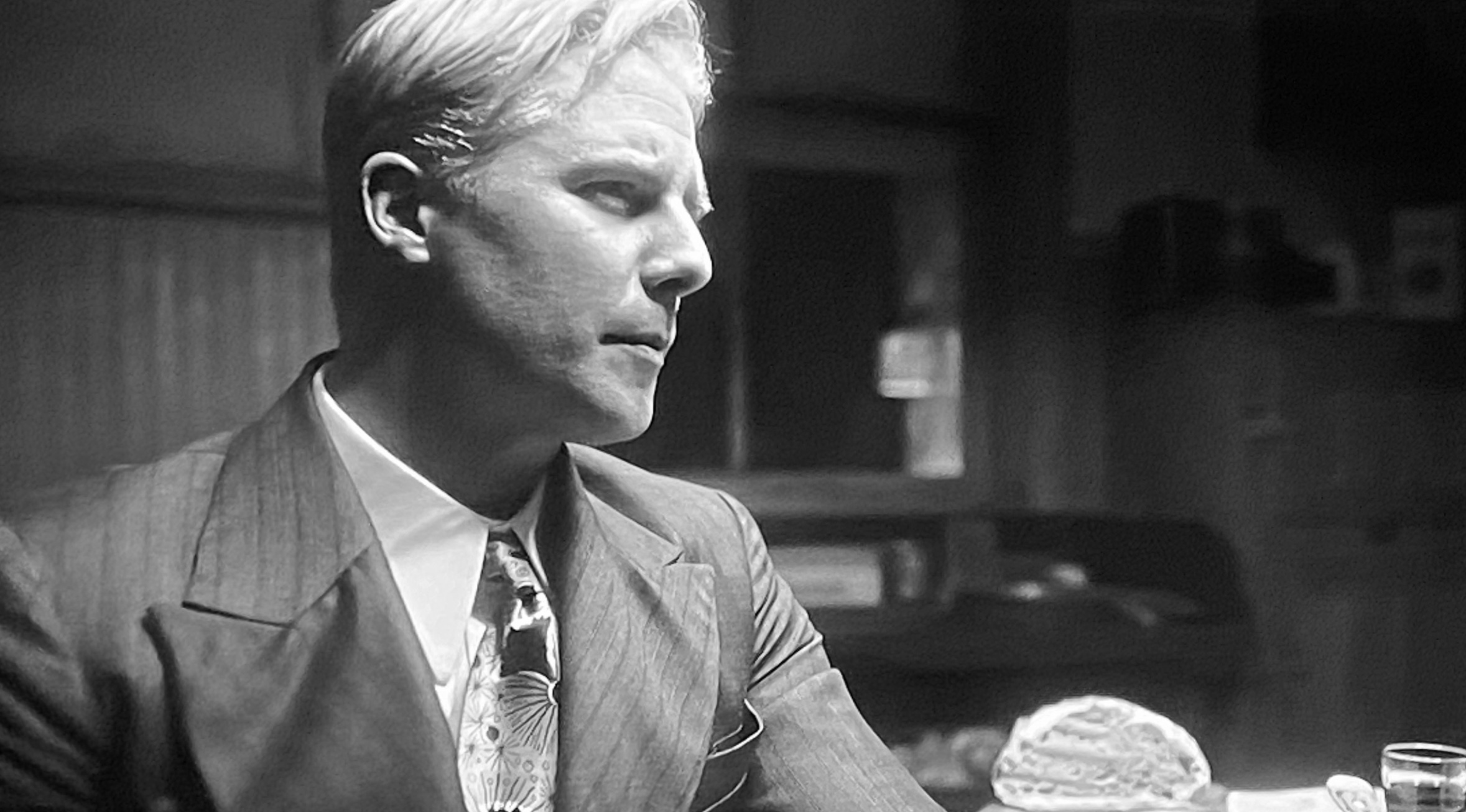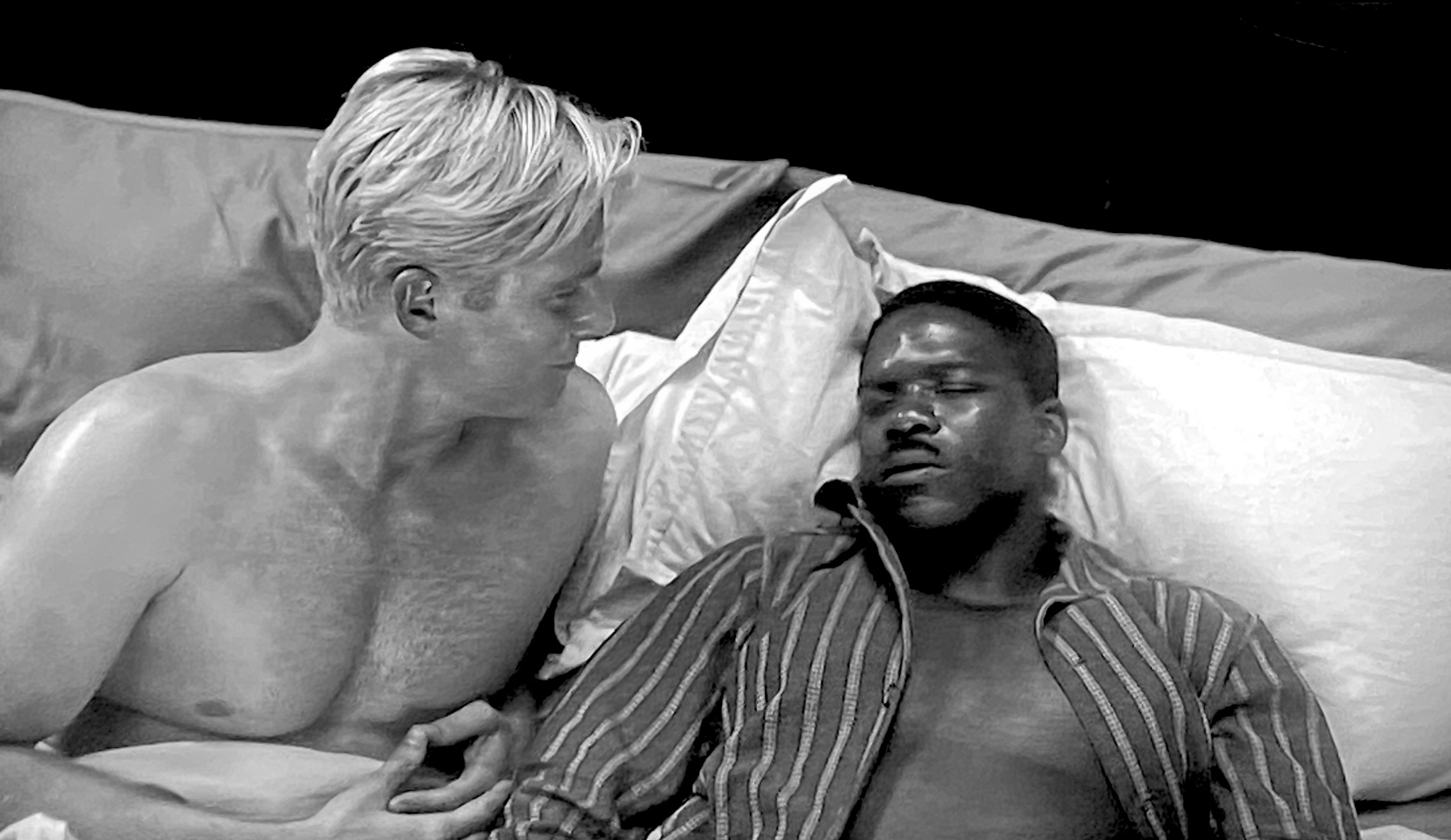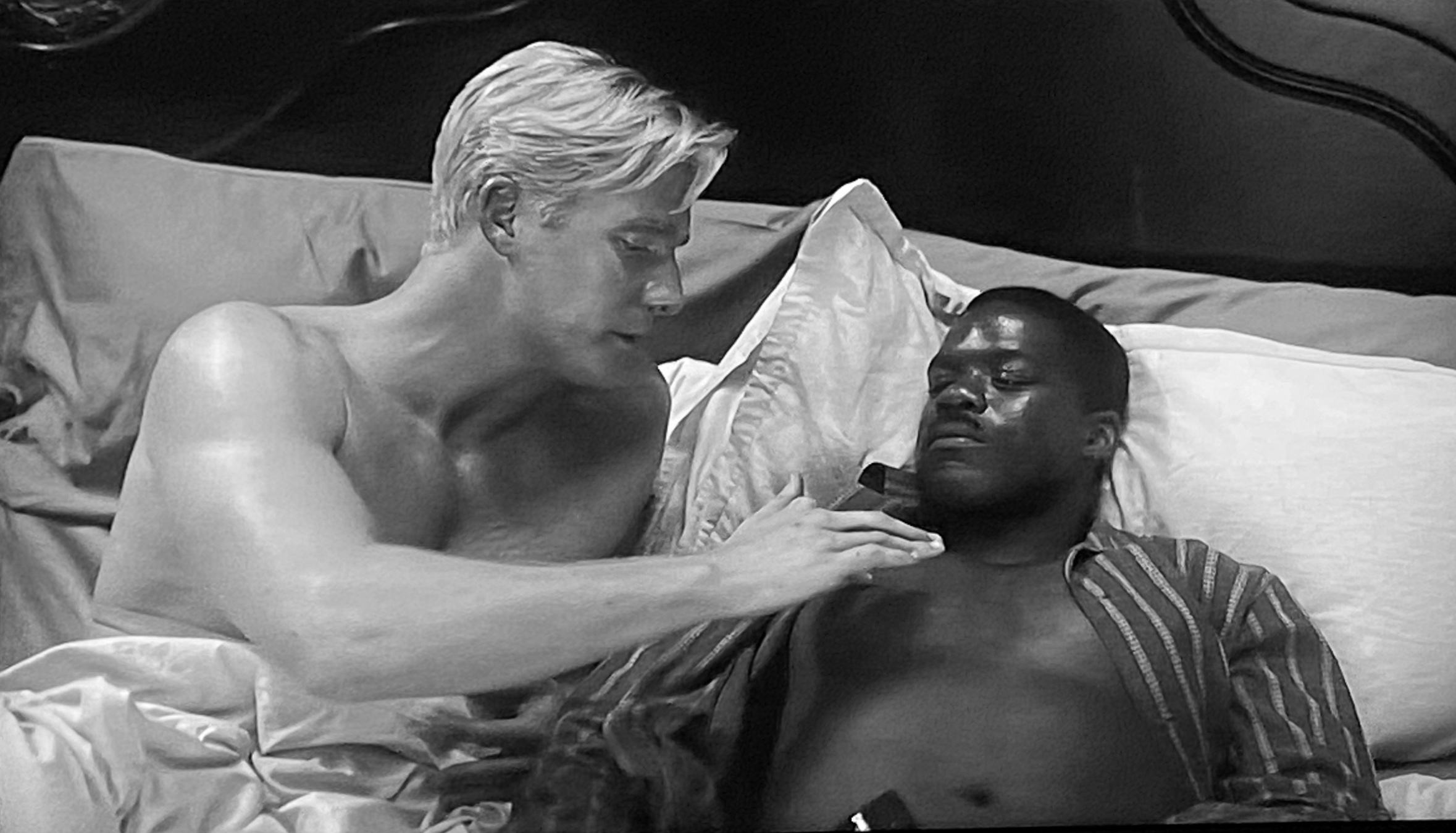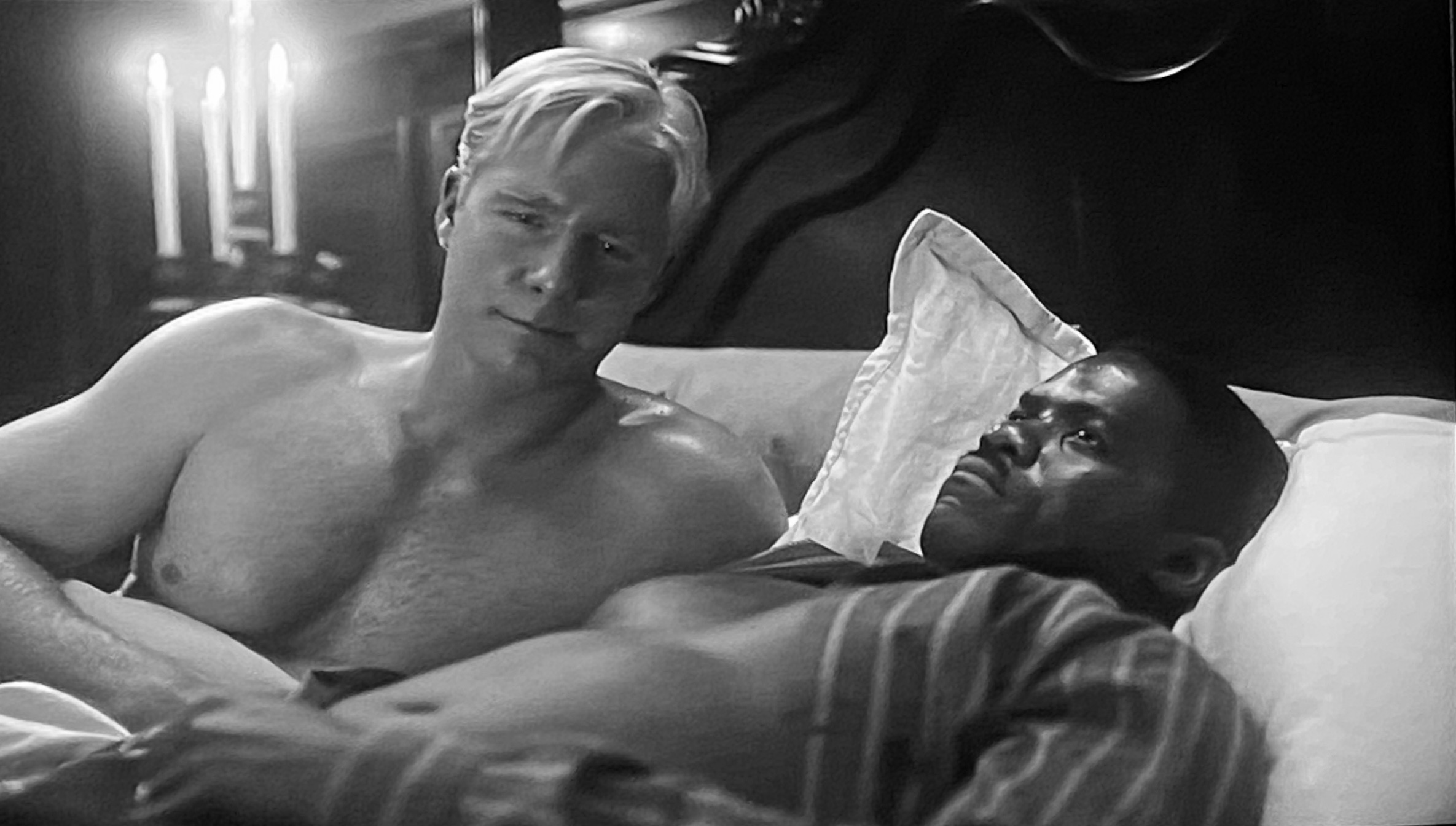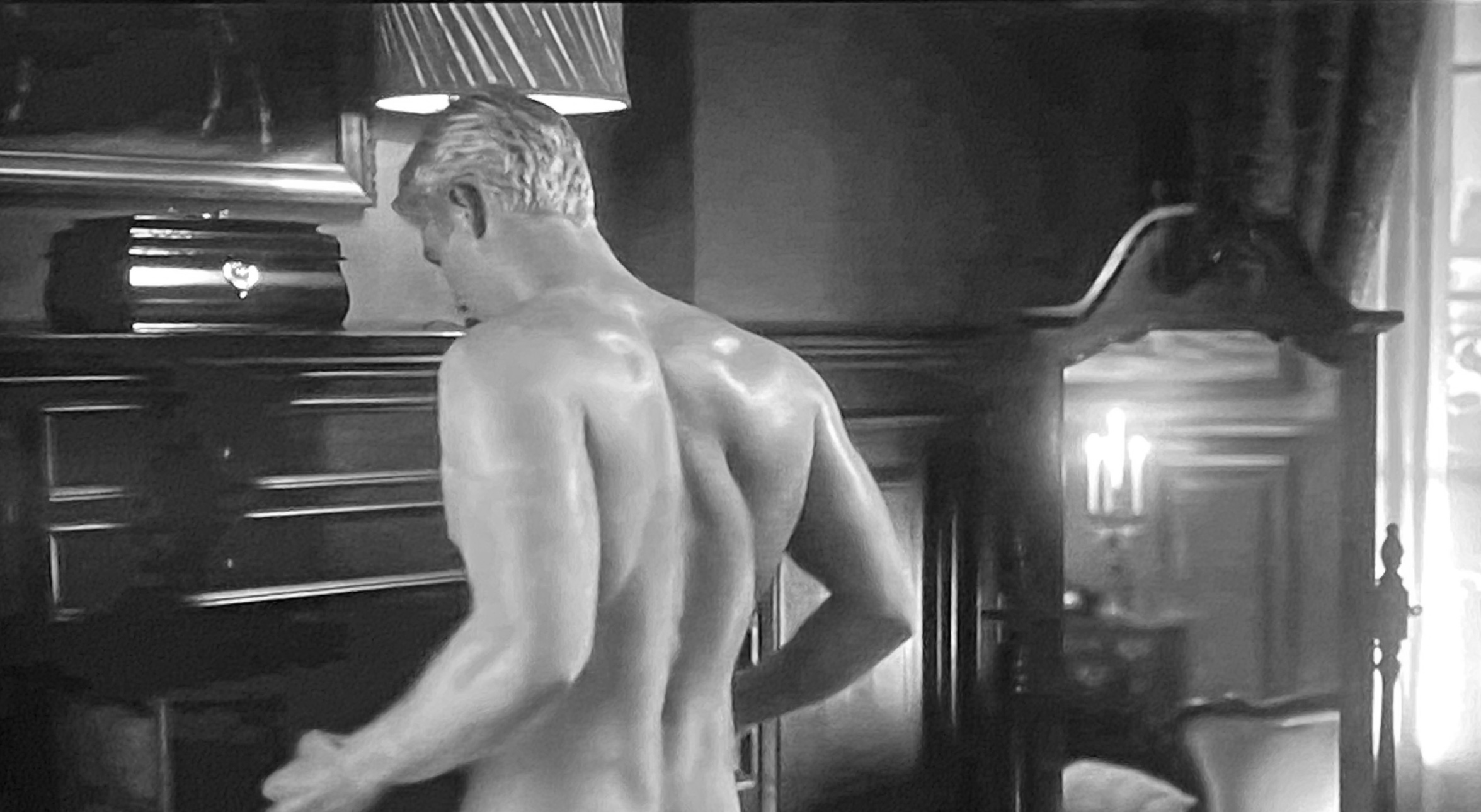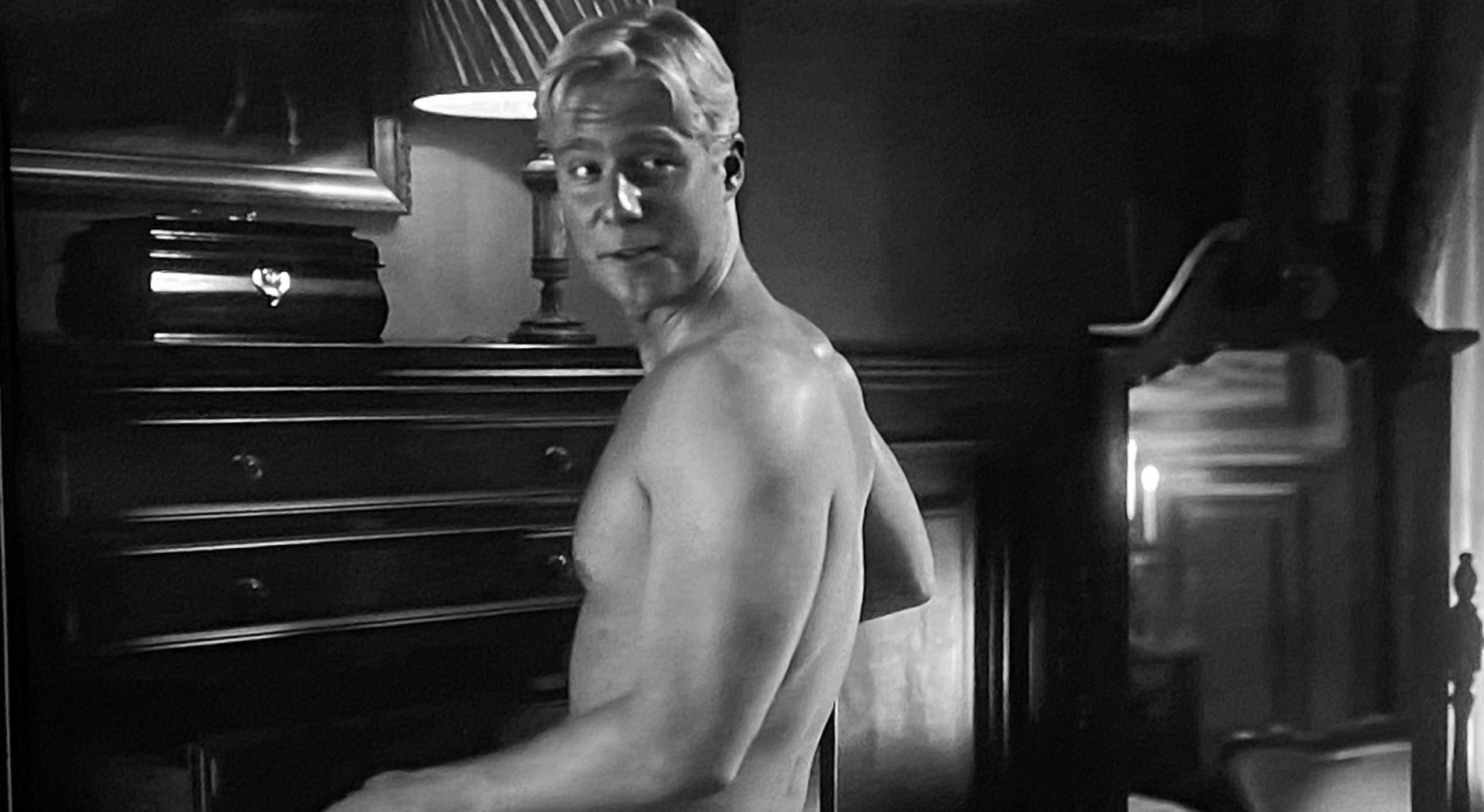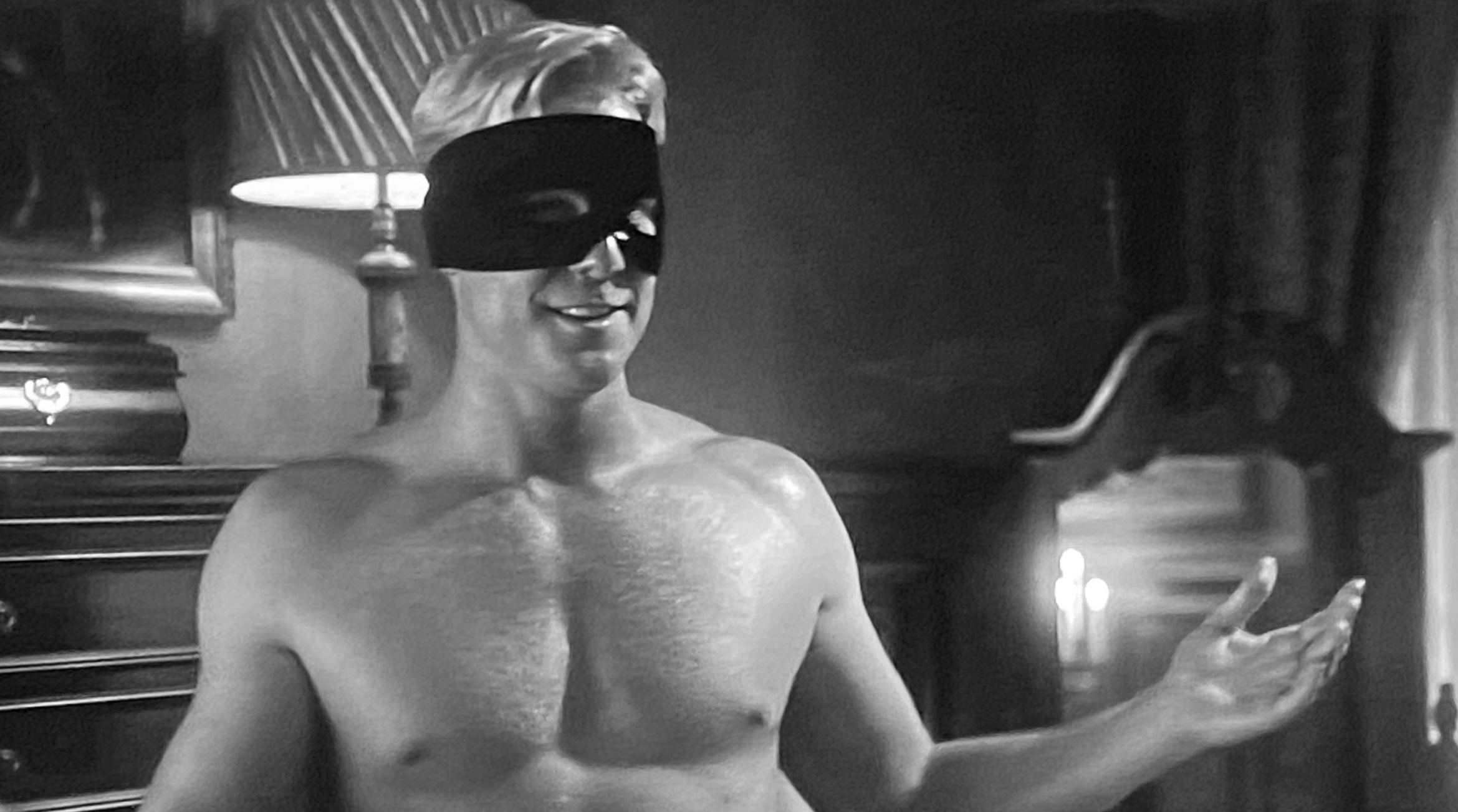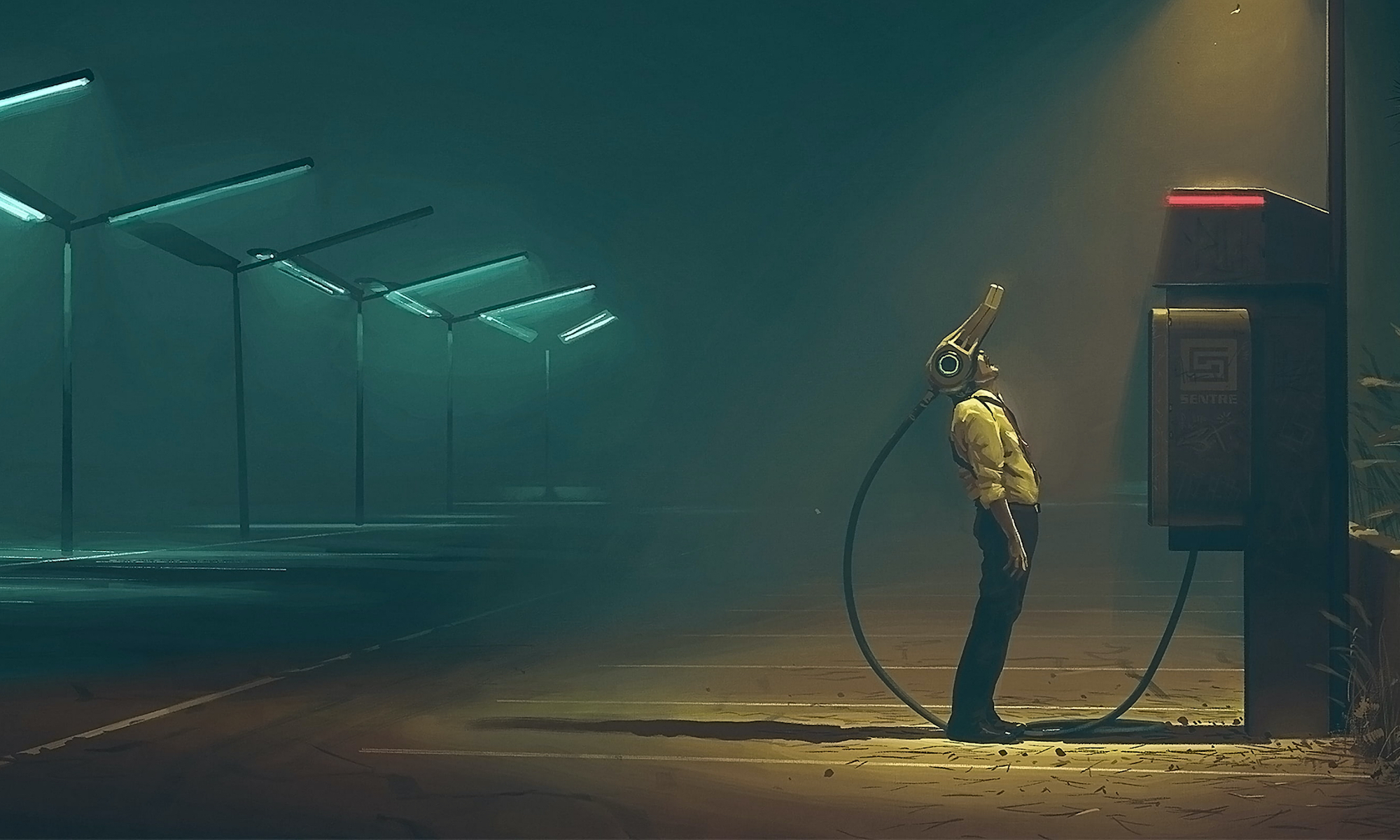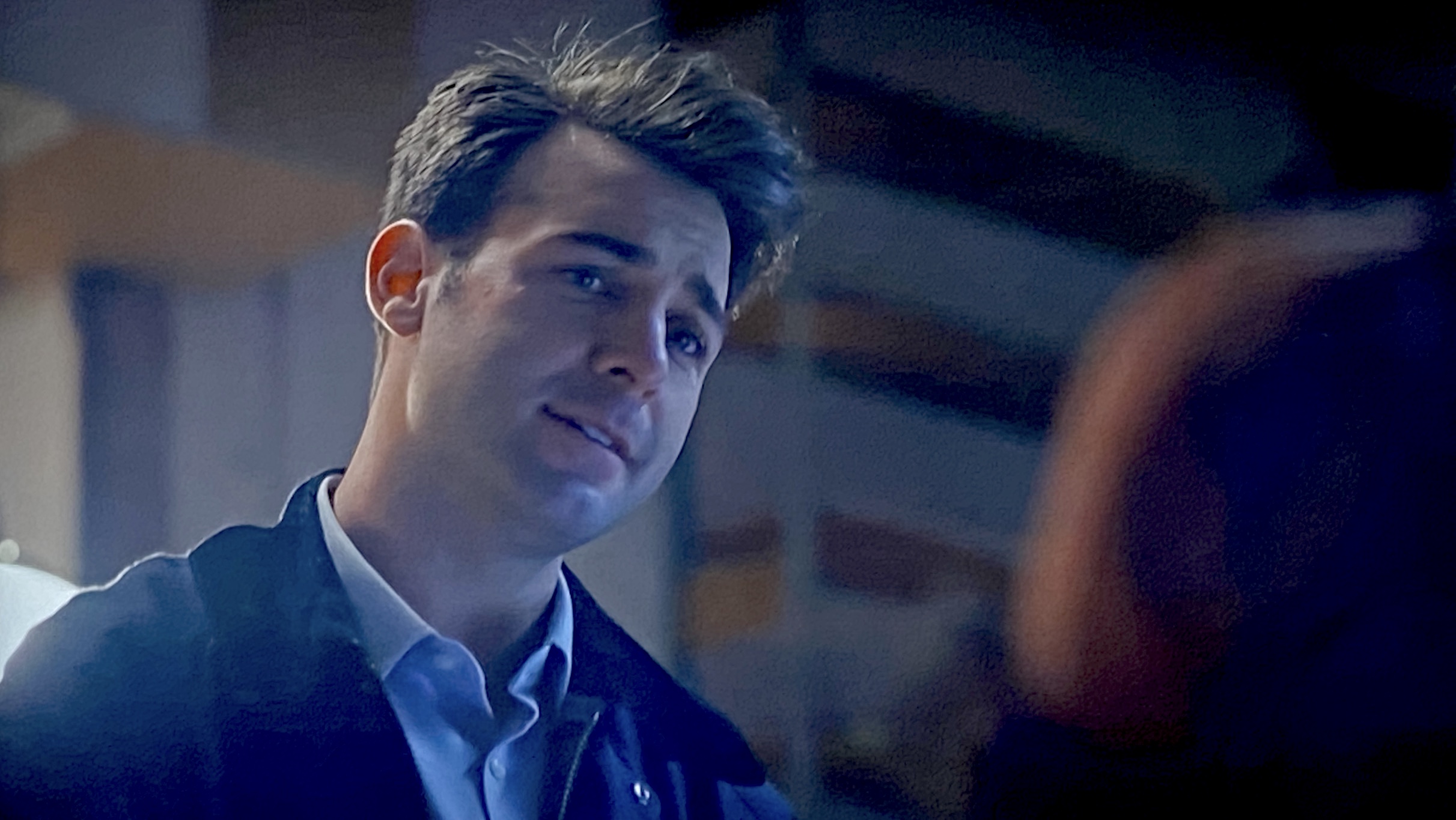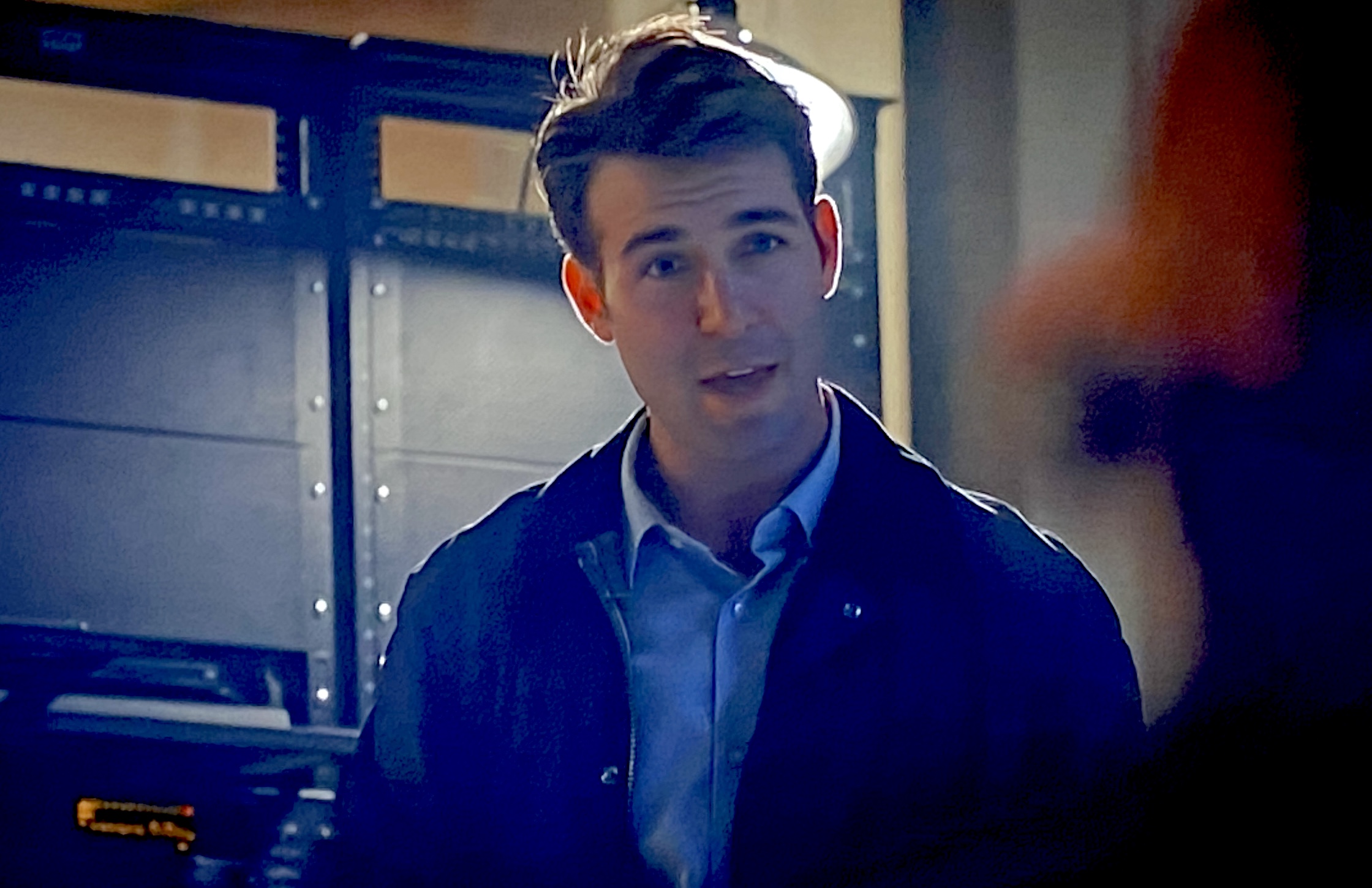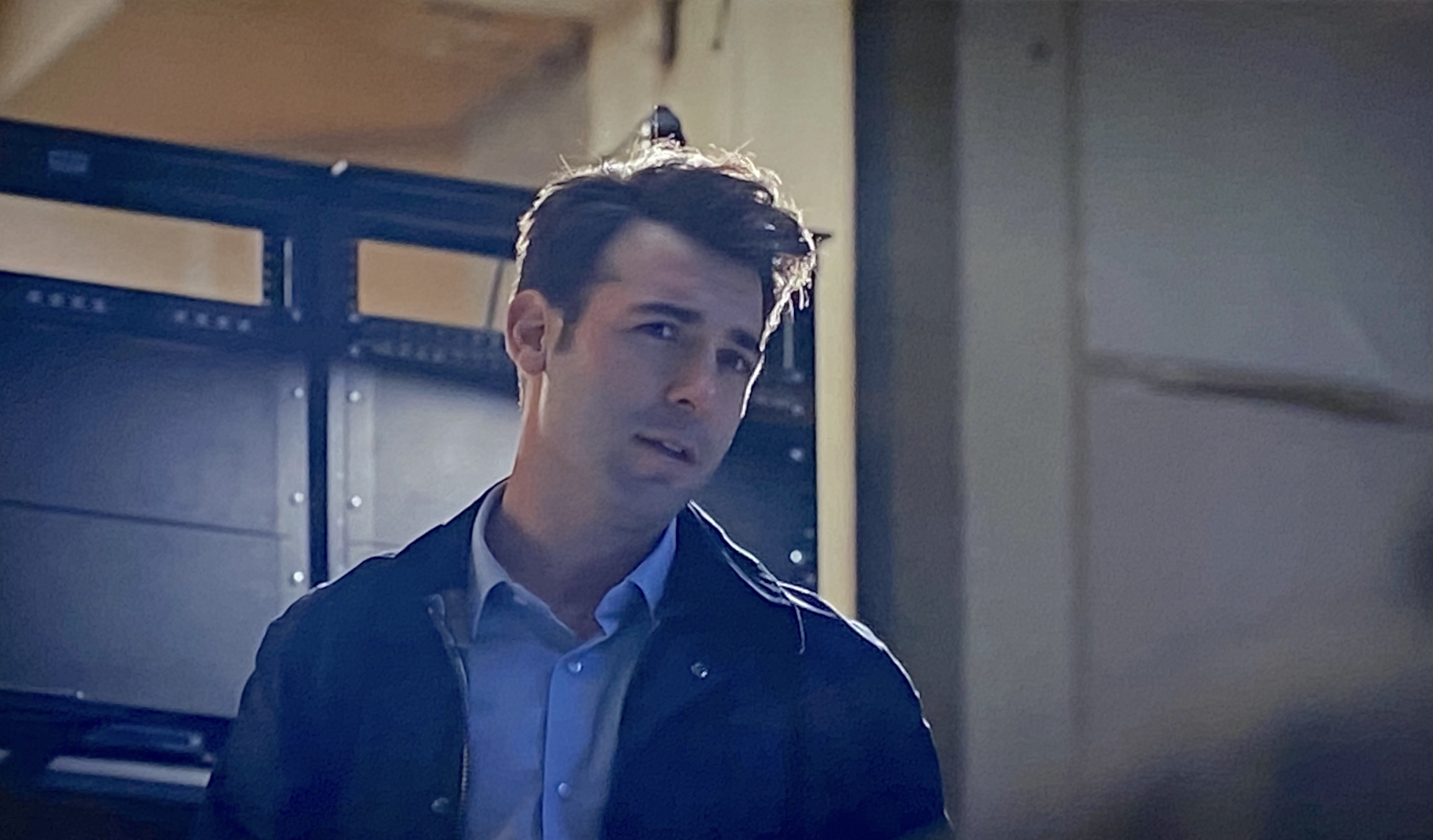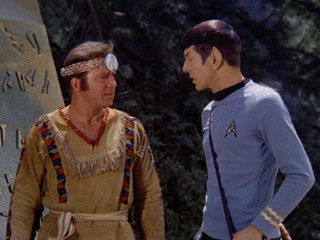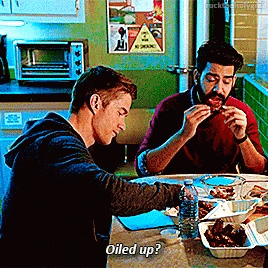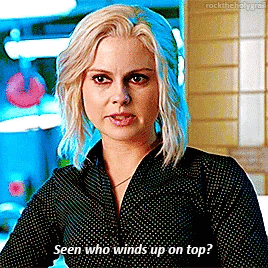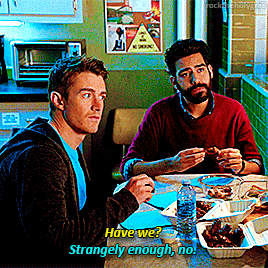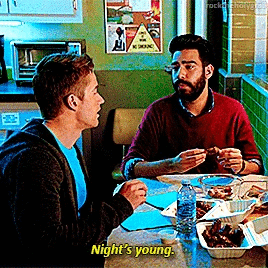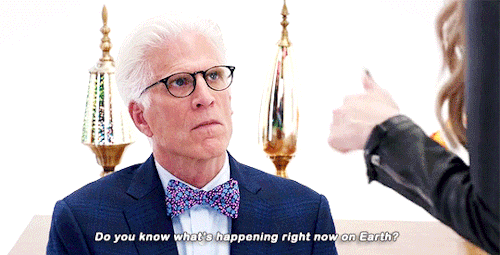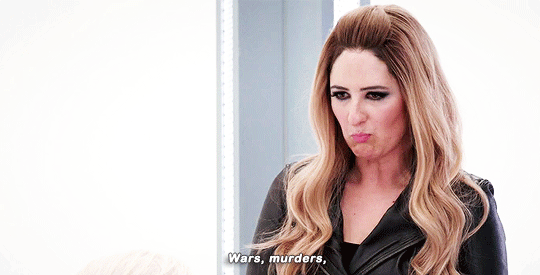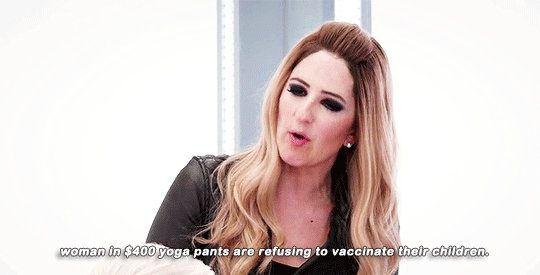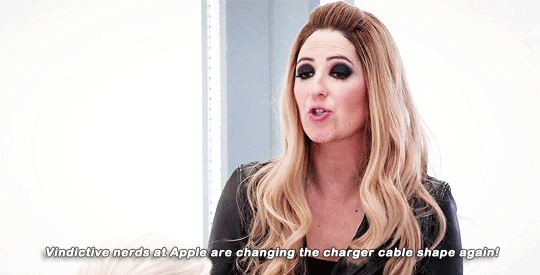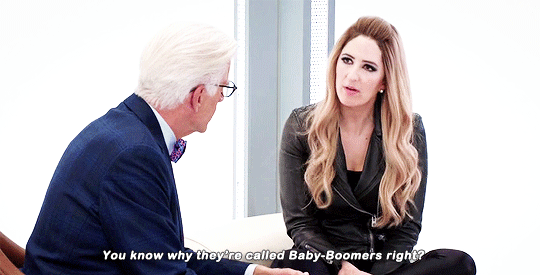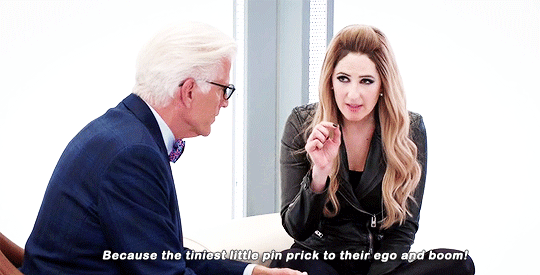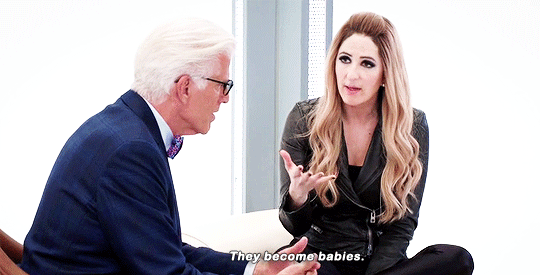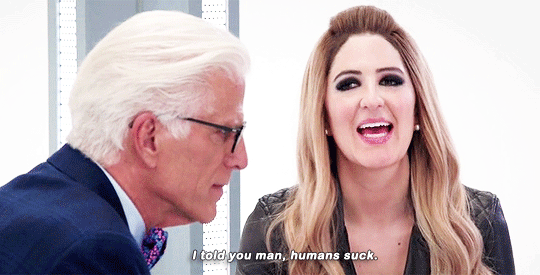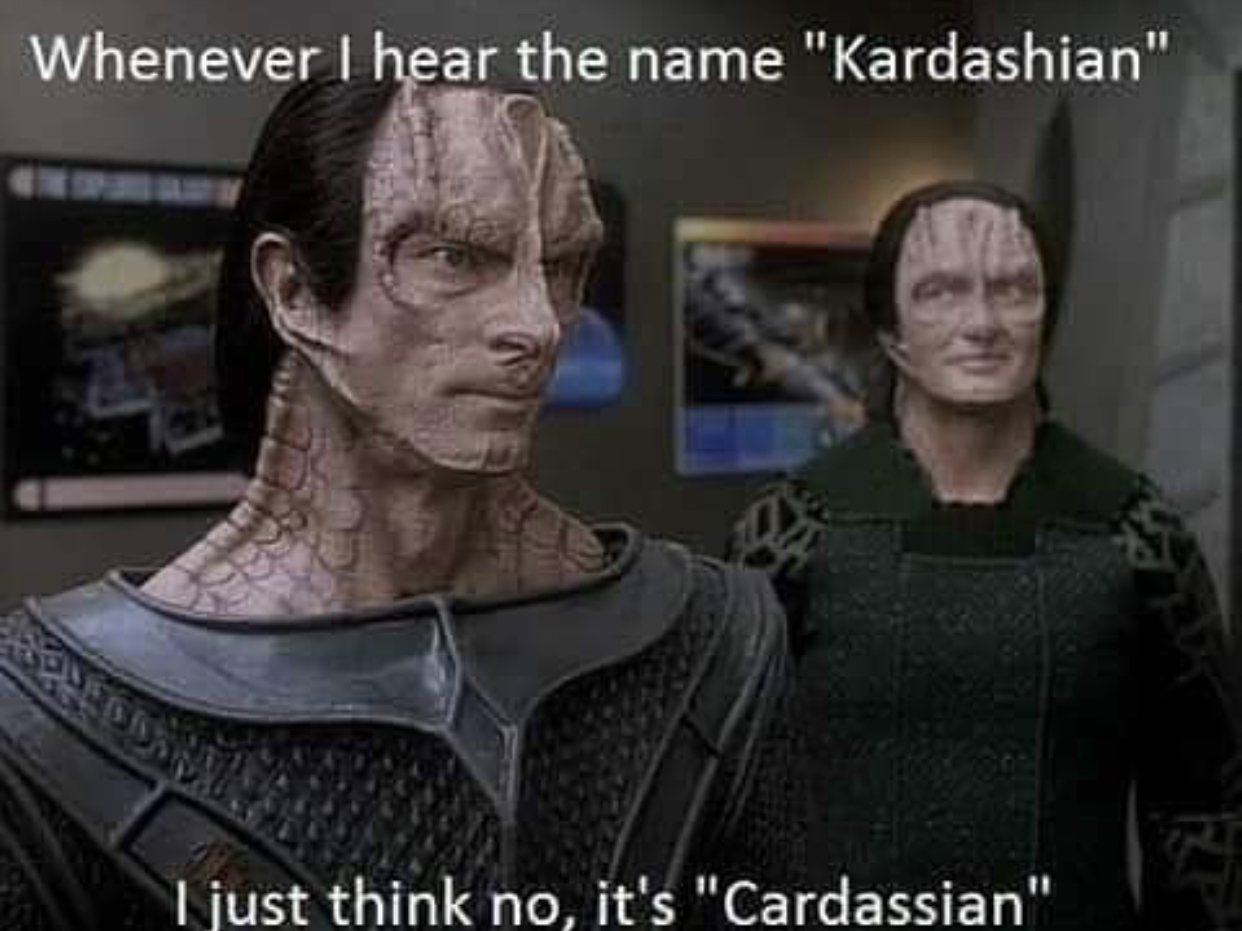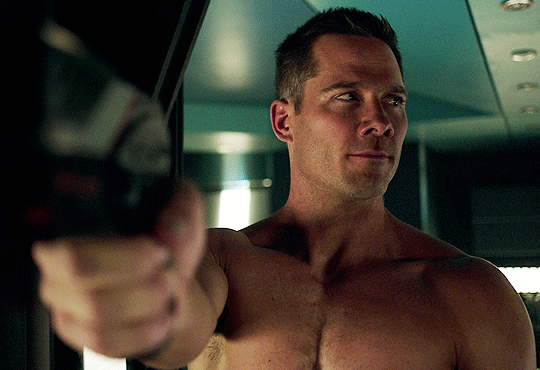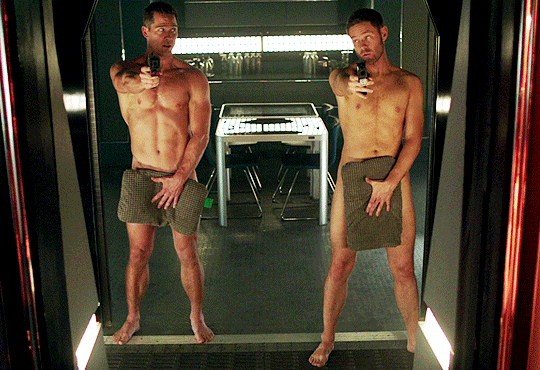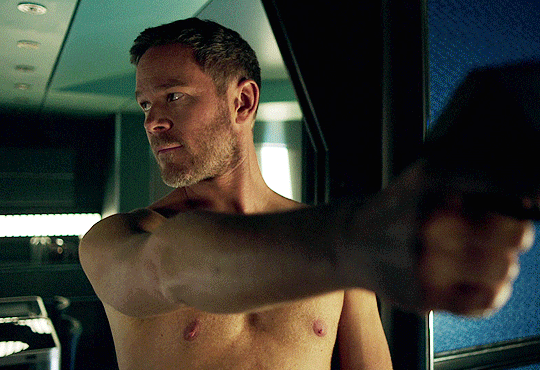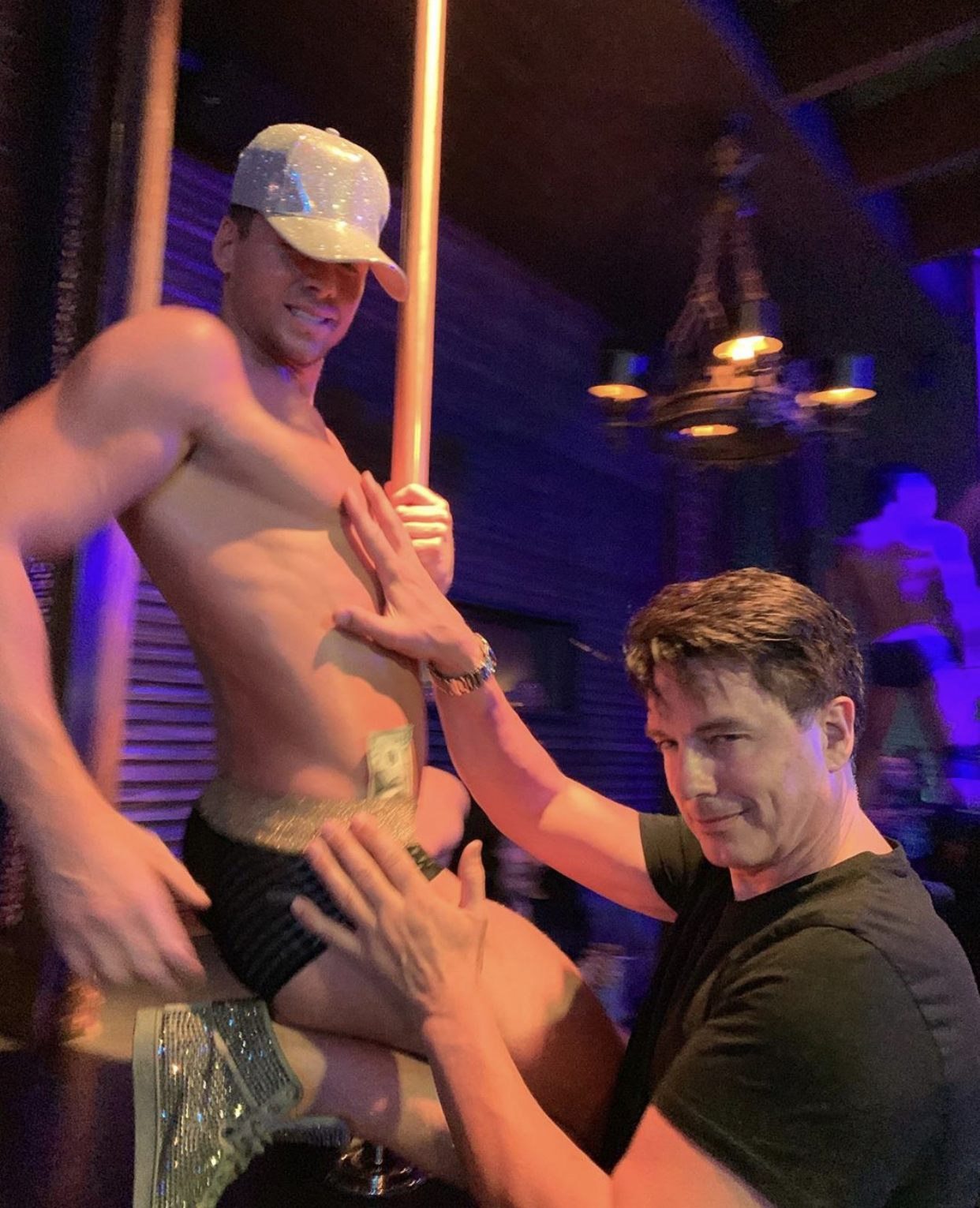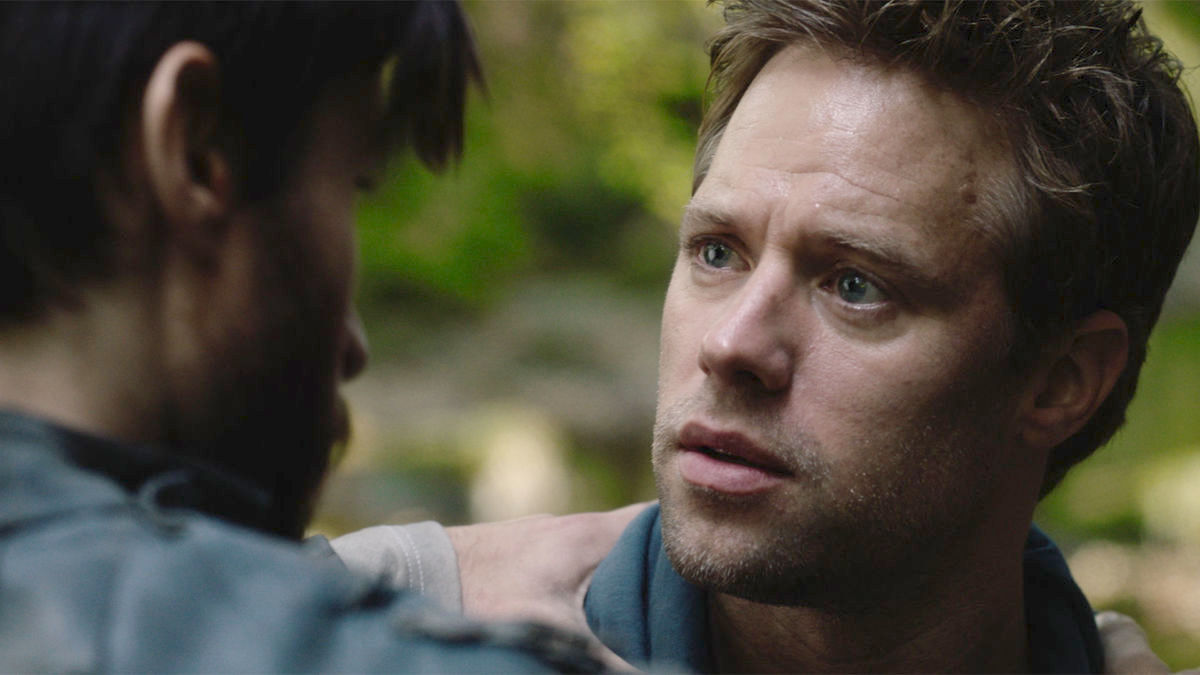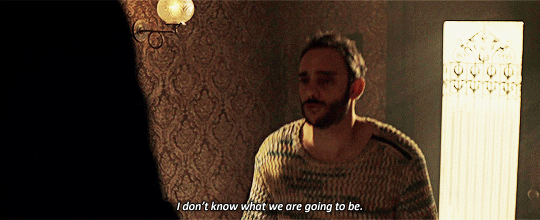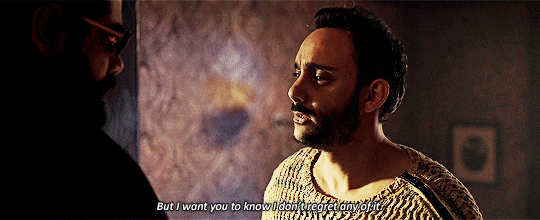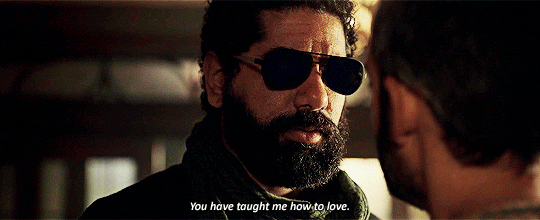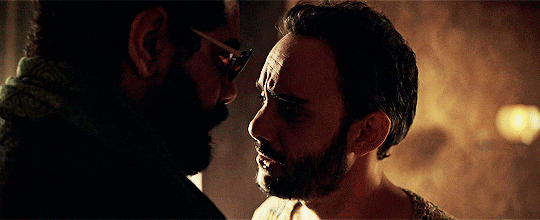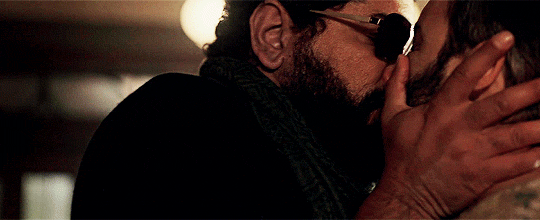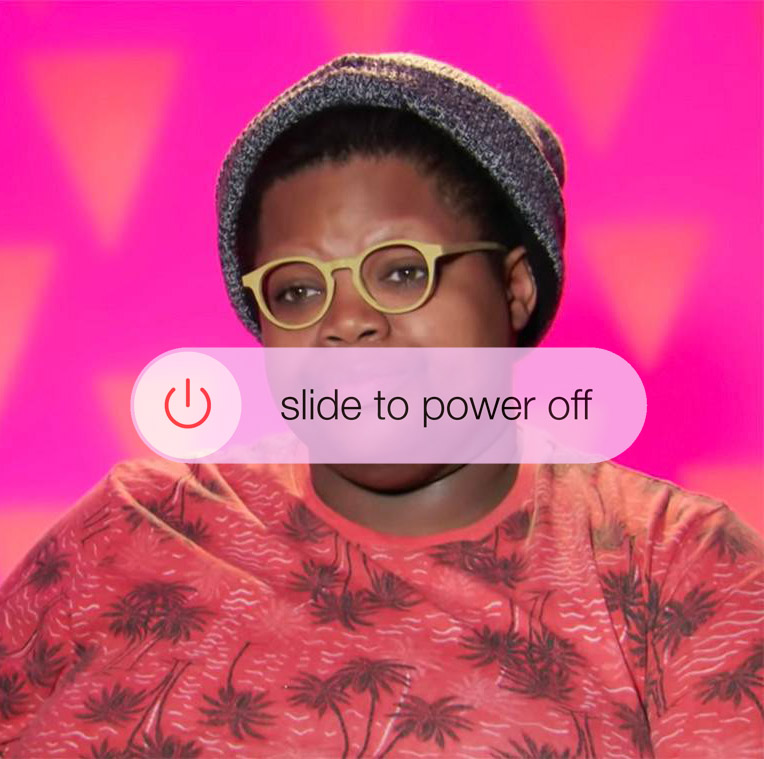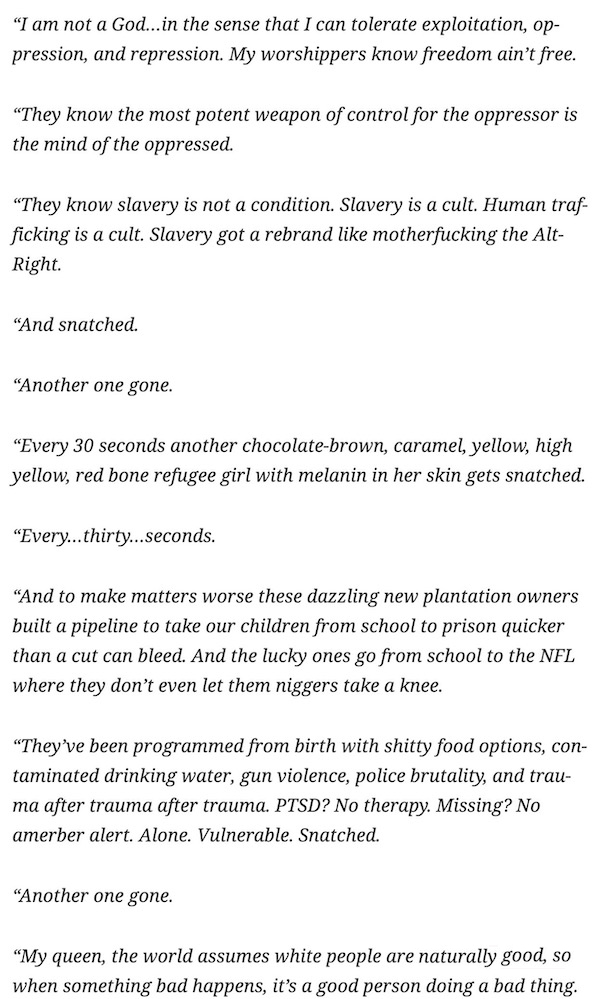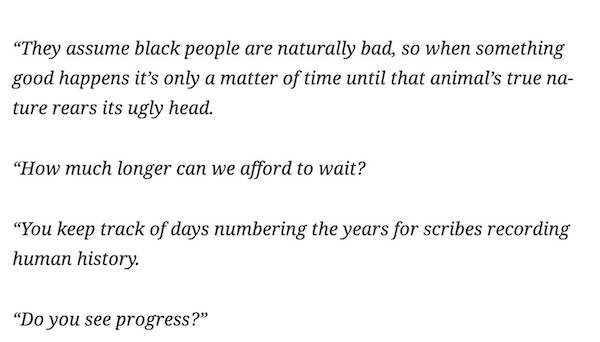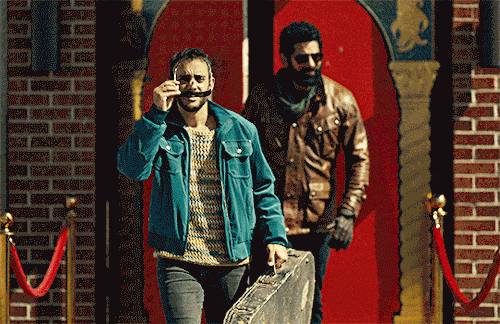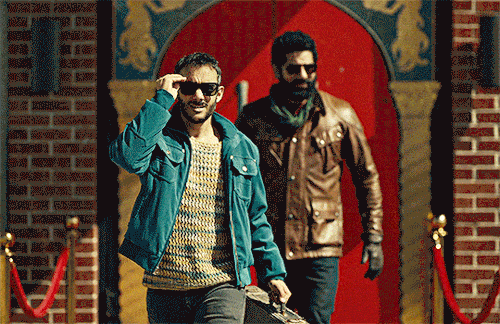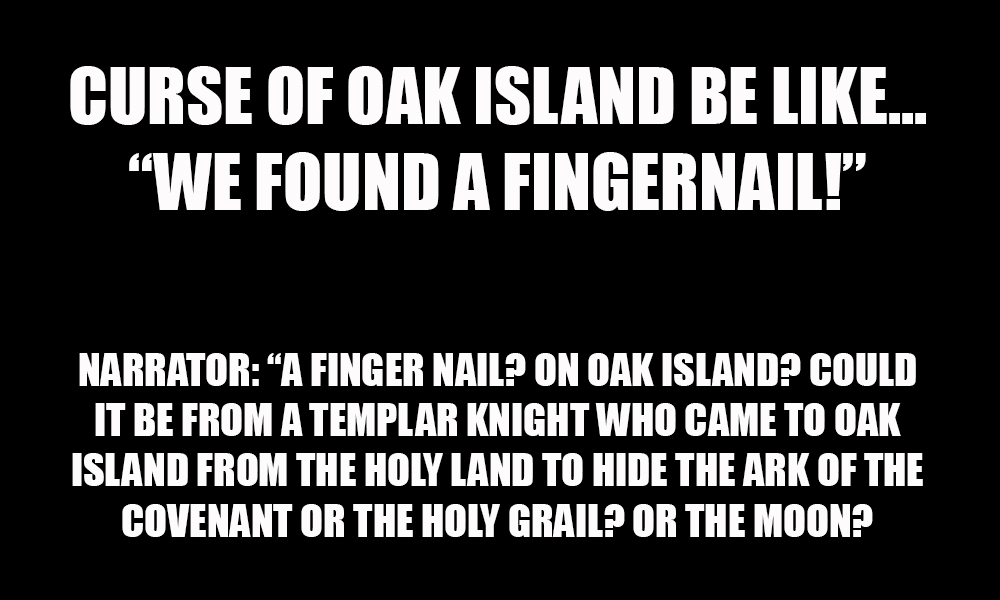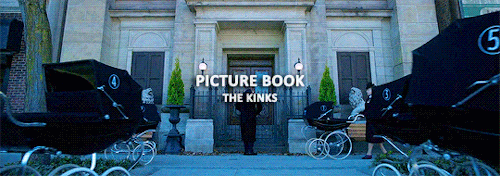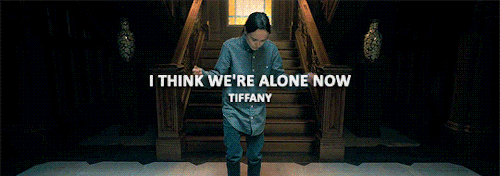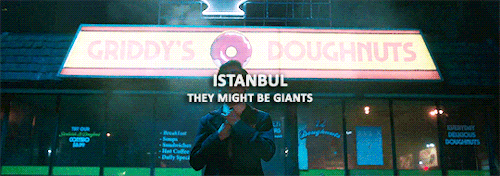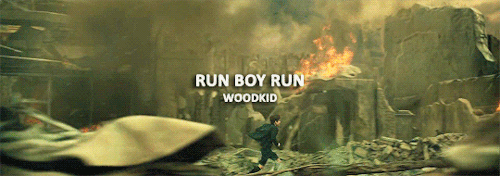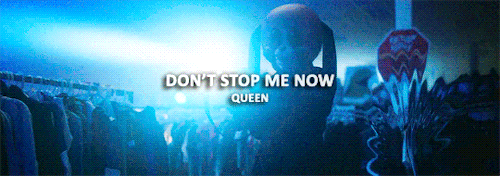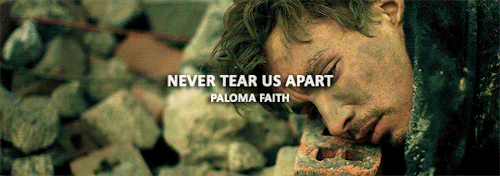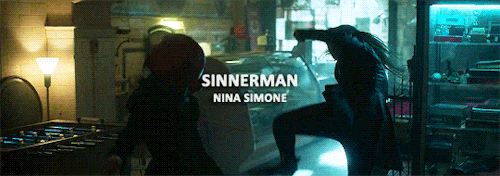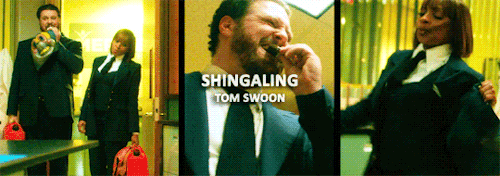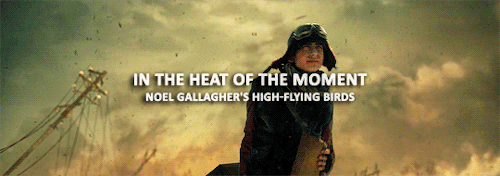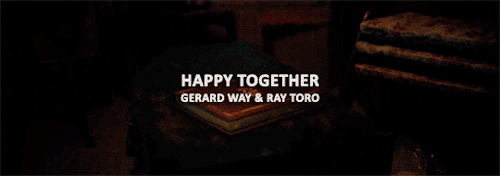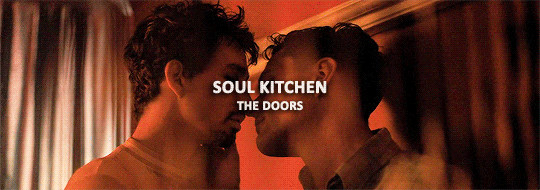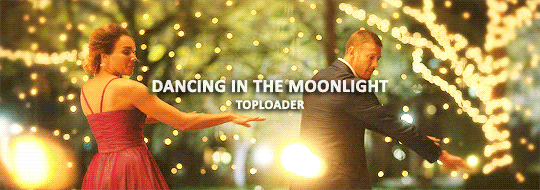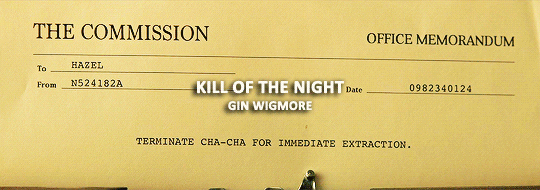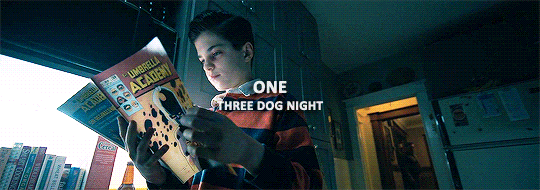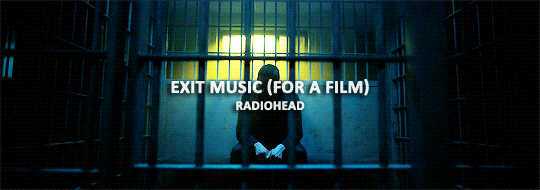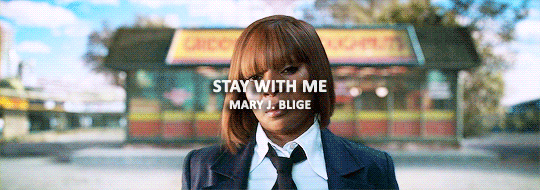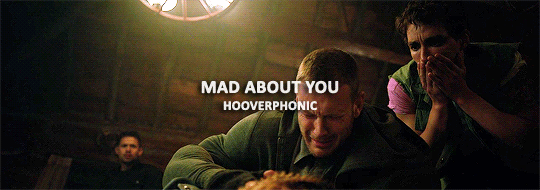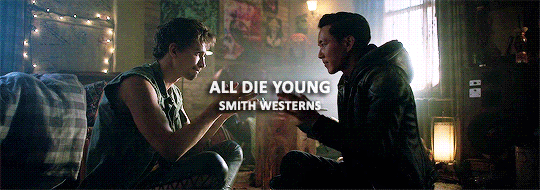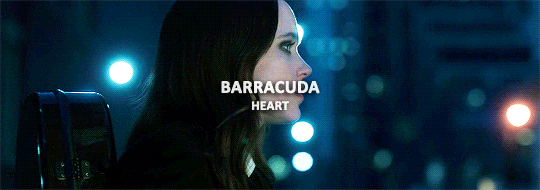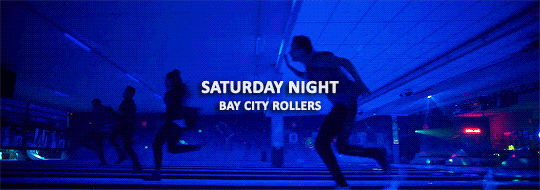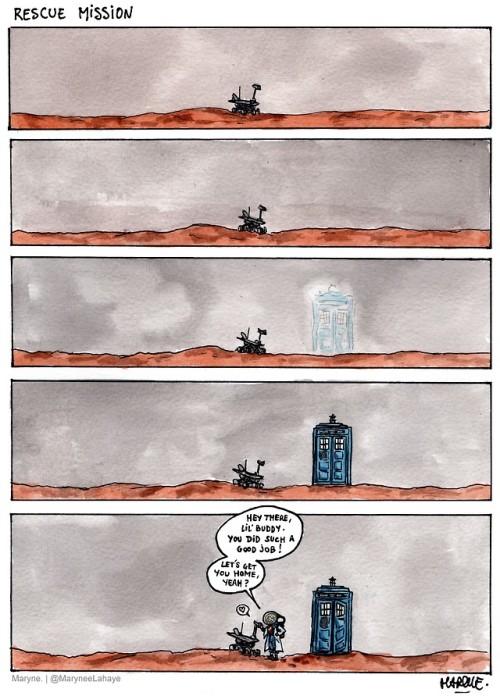Comedy gold from my guilty pleasure:
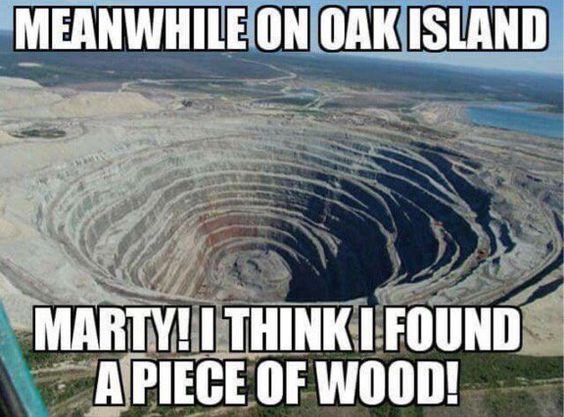
Marty: This thing has been way harder than I thought.
Marty: It's made me feisty.
Marty: Once more into the breach!
Dan: I exposed enough of it to tell what it was.
Dave: You wanna see it!
Rick: I wanna see it! I want to expose the entire structure.
Jack: How big are we talking?
Clotworthy: A mud-filled void.
Marty: It's still in there, then. Craig: Exactly.
Clotworthy: Taken from the same hole.
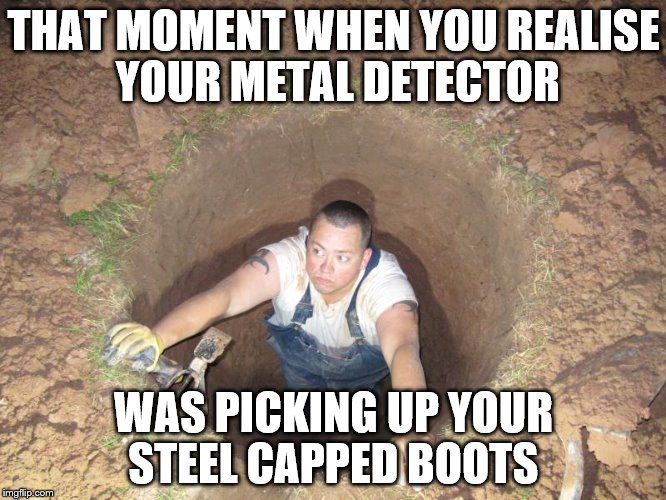
Gary: Look at this, Rick.
Marty: You can swing that metal detector.
Charles: You ain't seen nothin' yet. Marty: You ain't seen nothin' yet!!!! Gary: winks at Marty.
Marty: You ready to get after it?
Clotworthy: It is a day of great anticipation for Rick, Marty, and their partners.
Marty: So Craig, are you excited about this? It's been a long time coming.
Craig. Yes, excited and nervous.
Marty: We get to see what your dad has been dreaming about forever, right Dave?
Clotworthy: Each hole will be filled with a small blasting cap.
Rick: We are well on our way to defining a hard target.
Marty: I'm rolling up my sleeves and everything, Gary.
Gary: We pounded this area last year.
Marty: Keep going!!!!
Gary: This is good!!!!
Marty: We have a very mysterious structure under here.
Rick: My hope is that we can expose all of that, or enough of it.
Henskee: First thing is to estimate the diameter. This looks like it was part of something that was pretty large.
Rick: Don't let your imagination run away from you.
Rick: Peter, I designate you to take it there. Peter: I will bring a couple of guys with us.
Gary: It's quite deep as well.

Gary: Give me ten inches, just there mate.
Rick: Oh baby!!!!!
Clotworthy: This will generate a series of seismic pulses deep within the underground test area.
Jack: I didn't understand until I got here how big we were going.
Gauthier (the big guy from Eagle Canada): We were super-excited.
Jeremy (the bald guy from Eagle Canada): At that point where I believe the shaft or opening is.
Rick: I get choked up. You should be proud of yourselves. You hit the mark, you hit the bullseye.
Unidentified Eagle Canada worker: We're gonna chew up that money pit pretty good.
Dr. McFarland (New Brunswick University): We can get it going.
Dr. McFarland (New Brunswick University): Very nice…
Dr. McFarland (New Brunswick University): This is where all the action happens.
Dr. McFarland (New Brunswick University): When I push it in, you will actually see……doink!
Gary: Look at this!!! A fricken' hole!!! (sticks finger in and out of hole in rock). What the heck has someone been doing here?
Gary: You can see where this has been pounded in.
Gary: It's obvious these two holes are connected.
Irving (the suit): We've got a couple of tricks up our sleeve.
Irving (the suit): Here are the engineers, and a couple of guys from the pile-driving department.
Craig: So we said sure, we'll do it with you guys.
Marty: I did see the picture that you sent, and it is exciting!
Rick: This is more about eyes and boots on the ground, getting dirty, jumping in.
Peter: So there's something really big/deep. Mike West (geophysicist with
GPR): Yeah, this isn't a subtle response.
Gary: You never ever know what is going to come out of your next hole.
Rick: Gary reached in, and there you go.
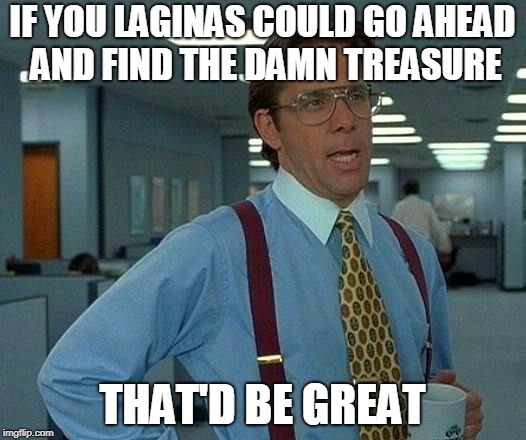
Source.
